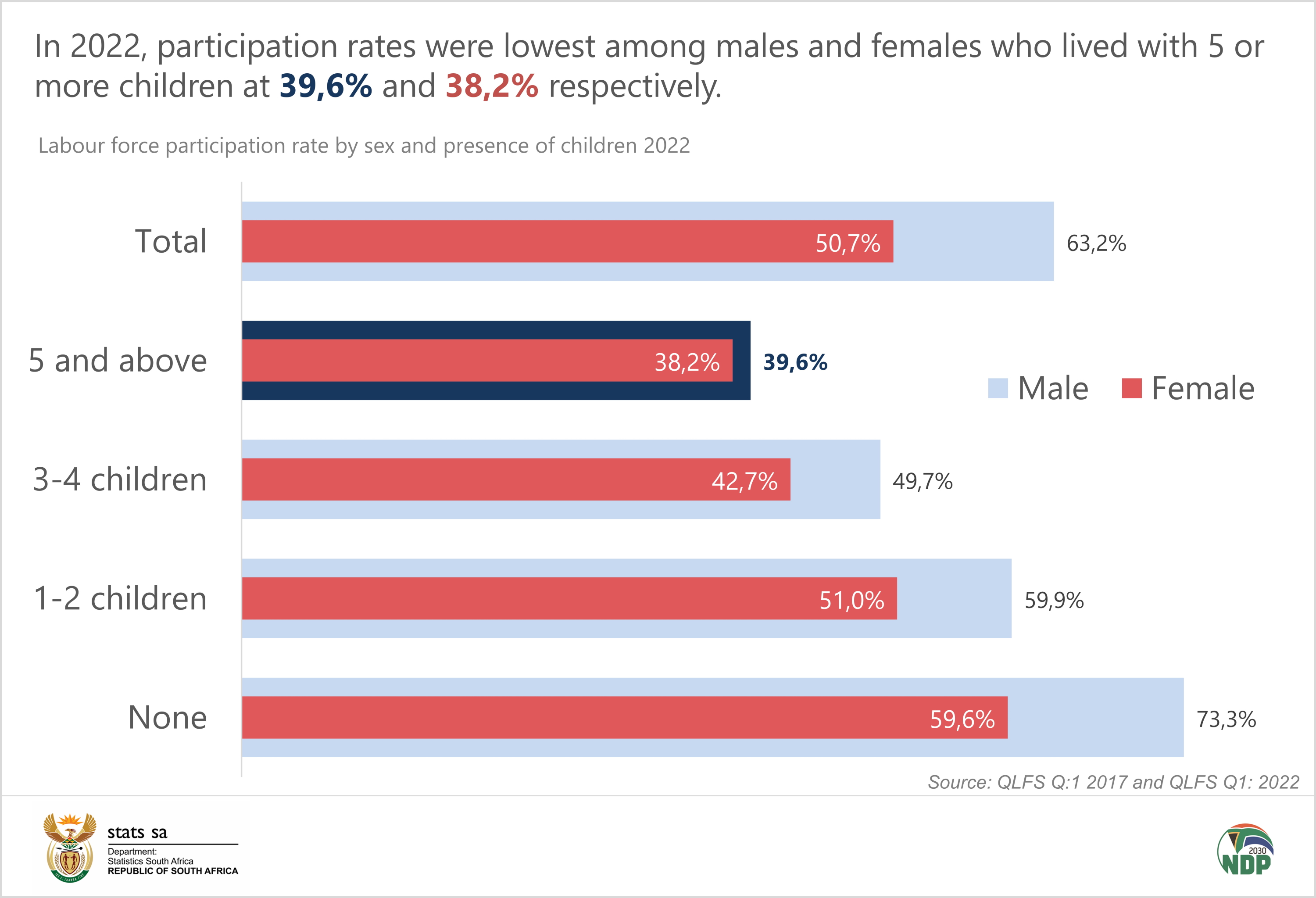
To effectively address skills shortages and transform gender diversity in organisations, we must understand and tackle the reasons behind the talent gender leak. By implementing practical solutions to retain and support women at all stages of motherhood, we can economically empower women and contribute to reducing gender-based violence (GBV). Let's look at strategies to retain working women through all stages of motherhood.
In South Africa, the female workforce lags, with only 15% of executives in the entire executive population of all JSE-listed companies being female. This is despite the following facts:
- Women display great ambition to develop themselves: the gender parity index for enrolment by higher education institutions is University (1.5), TVET Colleges (1.4), CET Colleges (2.2).
- Women want to work: The Working Women Report 2024 research shows that 92% of women want to work at all stages of life, and despite the prevailing thinking, most want to work full-time in a hybrid manner that delivers financial reward.
- Women qualify at higher rates than men: the majority (52%) of people with post-secondary education are women, and within STEM 47% of African universities' STEM graduates, undergraduates and postgraduates, are women.
This is despite companies hiring male and female graduates at a 1:1 ratio at entry-level positions.
(Source: RecruitMyMom Working Women Report 2024)
The Reality of Women in the Home
In many households, especially in developing countries, women shoulder most family care responsibilities. From birth to an empty nest, mothers carry the essential, additional responsibility of caring for children. WHO and UNICEF recommend exclusive breastfeeding for six months and continued breastfeeding for up to two years, alongside the need for parents to support early childhood development and homework, particularly in struggling education systems. Additionally, women often manage household tasks and care for loved ones with illnesses such as HIV, TB, and cancer.
In South Africa, 80% of working women have dependents, and 37% are sole-income earners.
Despite these responsibilities, 78% of working women in SA aspire to grow in their careers across all age categories. In the SA, 95% of stay-at-home moms returned to work after a break, highlighting a significant opportunity for employers and society.
Diversity Equity and Inclusion as a Sound Business Practice
Research increasingly shows that gender diversity and inclusion correlate with above-average company financial performance. The 2023 McKinsey DEI report found that top-quartile DEI companies were 39% more likely to experience financial outperformance than their bottom-quartile peers.
Companies with more than 30% women executives outperform those with fewer female leaders.
Understanding Gender Leak in the Workplace
Gender leak refers to the attrition of valuable female employees from middle to executive management levels, often occurring during child-bearing and rearing years. As seen from the diagram below, this leak significantly impacts the ability to grow senior female leadership. These working mothers are invaluable to the workforce, locally and globally.

A mother, as seen by RecruitMyMom, is a highly skilled and experienced professional with innate soft skills such as reliability, multitasking, self-leadership, and effective communication. These qualities, developed through her nurturing role, contribute exceptional value to the workplace, where she exemplifies loyalty, trustworthiness, and responsibility. She enriches her work environment with invaluable wisdom and empathy, driven by her high standards as a role model for her children. Her professional ambition is fueled by a strong sense of duty, leaving a lasting legacy of strength and commitment in her community.
In this article, we recommend practical solutions to stem the gender leak of these valuable women.
Adopt Flexible Work Arrangements
Most working mothers seek a level of work flexibility to integrate work and home successfully. Offering remote and hybrid work and flexibility will result in:
- Higher talent attraction
- Increased diversity and inclusion of working mothers
- Lower quit rates
- Increased productivity
- Significant cost savings for companies
The Working Women SA report indicates that the more senior the role, the more desirable it is for career moms to work more flexibly. Increased work responsibility requires increased flexibility to manage the demands of work and home. These arrangements will retain skilled, educated, and experienced women in the workforce, mitigating the skills shortage in South Africa.
Strategies to Stop the Gender Leak
- Proactive Succession Planning: Develop clear pathways for female employees to advance through all the stages of motherhood. Succession planning requires engagement with employees at various life stages.
- Mentorship: Encourage more senior managers to mentor working mothers and provide sponsorship and feedback sessions to encourage a sense of feeling valued and included in the organisation.
- Female Role Models: Promote senior working mothers who model work-life integration well. Enable these senior role models to openly communicate how they succeed at working flexibly and integrating work and life.
- Measure Productivity, Not Presence: Implement measures and KPIs that measure output and business impact rather than hours worked.
- Corporate Culture: Review your organisation's culture to see if it is working woman-friendly. Patriarchal, male-dominated cultures cannot support a thriving gender-diverse culture.
- Trust and Support: Build a culture of trust, enabling employees to balance work and family responsibilities.
- Offer benefits that resonate with working women: Offer meaningful benefits for women, including competitive salaries, medical aid and flexible working options.
About the Author Phillipa Geard, Founder and CEO of RecruitMyMom and RecruitAGraduate, leads a national online recruitment agency matching forward-thinking employers with skilled, experienced women seeking meaningful career employment in various fields, including law, finance & accounting, marketing, IT expertise, and office support.


